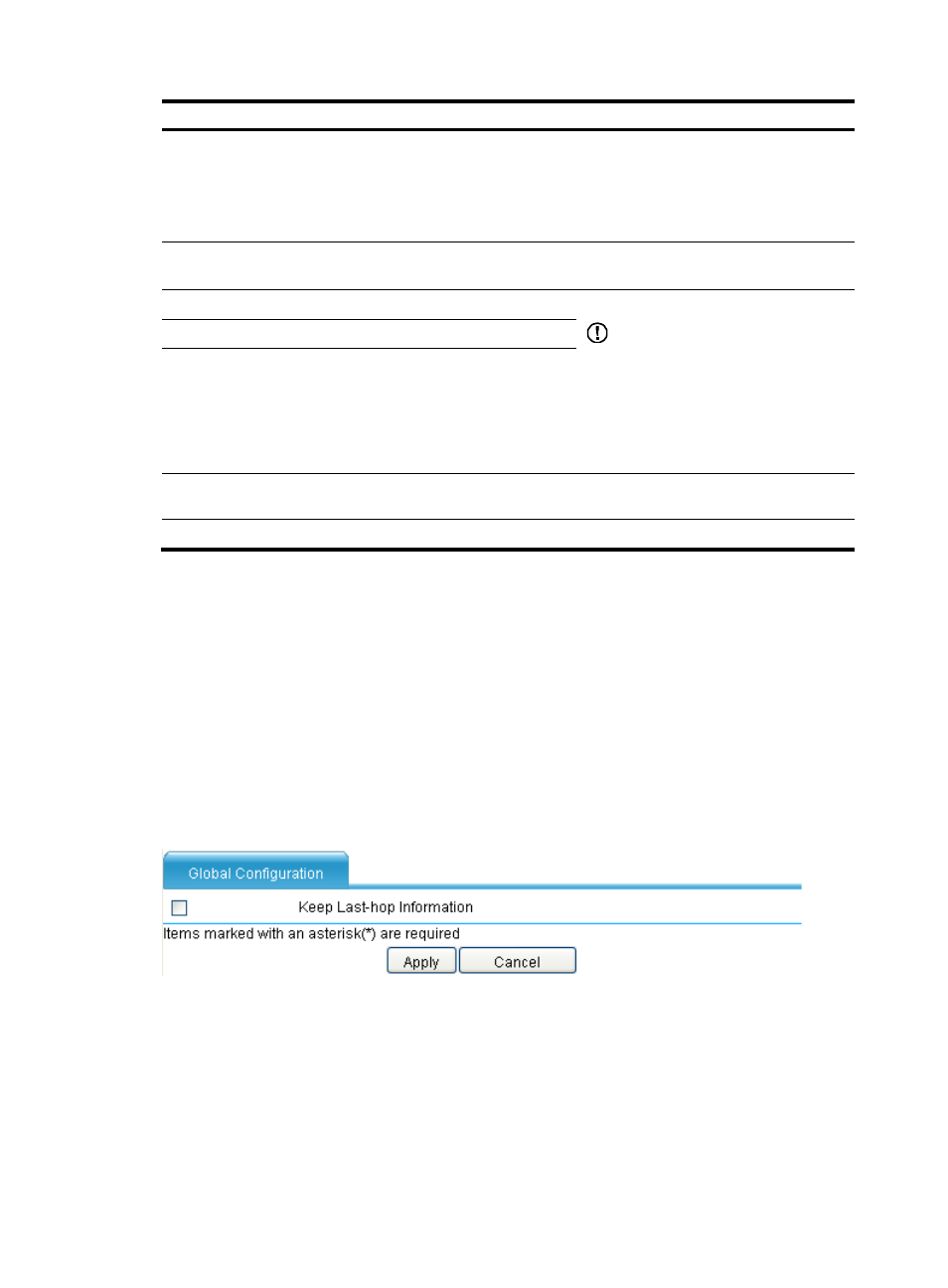Configuring public parameters, Ation, see – H3C Technologies H3C SecBlade LB Cards User Manual
Page 16

10
Step Remarks
2.
Enabling unidirectional traffic detection
Unidirectional traffic detection must be enabled on an LB
product in DR server load balancing. This task is optional in
other cases.
To configure unidirectional traffic detection, navigate to
Security > Session Table > Configuration.
3. Configuring a health monitoring method
A health monitoring method must be configured if you adopt
SSL health monitoring. This task is optional in other cases.
4. Creating a real service group
Required.
IMPORTANT:
The maximum number of real service
groups, real services, and virtual services
depends on the resource configuration of
the virtual device. For more information, see
System Management Configuration Guide.
Required.
6.
Creating a
virtual
service
•
Creating a virtual
service for Layer 4
•
Required.
7. Displaying server load balancing
Optional.
8. Stopping service or enabling slow-offline
Optional.
To implement Layer 7 server load balancing, enable virtual fragment reassembly on the zone to which
the interfaces that process LB packets belong. For more information, see Security Configuration Guide.
To implement forced load balancing (see
for more information) of Layer 4 server load balancing,
enable virtual fragment reassembly on the zone to which the interfaces that process LB packets belong.
For more information, see Security Configuration Guide.
Configuring public parameters
1.
Select Load Balance > Public Setting from the navigation tree.
The public parameter configuration page appears.
Figure 11 Public parameter configuration
2.
Set whether to enable the saving last hop information function.
Enabling this function makes sure responses can be returned on the original path. This function
must be enabled on level 2 LB products in firewall load balancing.
3.
Click Apply.
